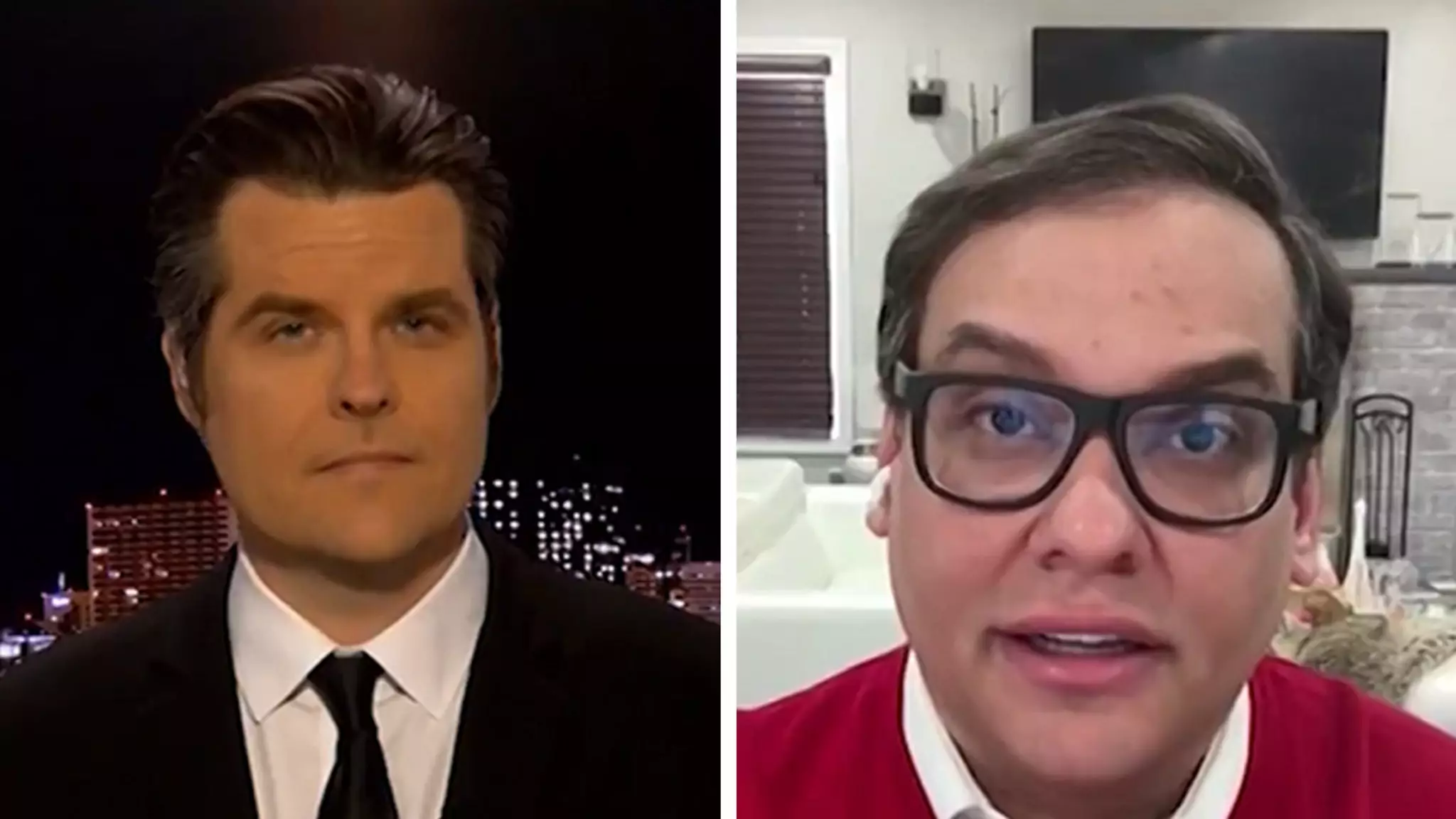In a turn of events that feels more like a chapter from a political thriller than reality, former Congressman George Santos has revealed his preference for solitary confinement should he be sentenced for his crimes. In a recent appearance on “The Matt Gaetz Show,” Santos articulated a desire to serve his prison time isolated from other inmates, fearing for his safety due to the very reputation he built in Congress. While many might view his request as a sign of weakness or cowardice, it raises significant questions about the nature of both accountability and safety in the penal system.
Santos, embroiled in a storm of legal troubles revolving around fraud and identity theft, appears to have adopted the role of victim even as he’s being prosecuted for his own misdeeds. In his mind, his time in Congress and his vocal stance against violent gangs like MS-13 have positioned him as a target among those incarcerated. This self-portrayal may reveal more about his character and the mindset of politicians under pressure than it directly addresses the realities of prison life.
The Nature of Political Scandals
Santos’ case is emblematic of the broader issues surrounding political integrity and accountability. Having entered Congress amidst significant public scrutiny, Santos’ tenure was marred by allegations of fabrications in his campaign biography. His rapid elevation to a position of power quickly unraveled as investigations uncovered the truth behind his claims. Such scandals not only erode public trust but serve as a stark reminder of how personal ambition can lead to devastating consequences—not just for the individual, but for the legislative process as a whole.
As he faces a potential seven-year sentence, Santos’ situation prompts a discussion about the implications of these scandals. In a climate where misinformation can easily sway public opinion, the repercussions of a single dishonest individual can ripple throughout an entire political landscape, redefining perceptions of leadership and governance.
The Perils of Political Isolation
However, the matter of requesting solitary confinement raises deeper ethical concerns about the treatment of inmates. While Santos argues that his previous position makes him vulnerable to violence, one must question whether he deserves preferential treatment based on his political status. Are existing laws about prisoner treatment being manipulated to afford safety to a former congressman, or are they designed for the equitable treatment of all?
The Federal Bureau of Prisons has caveats regarding placement in protective custody, citing a variety of factors that influence such decisions. The question remains: does Santos’ high profile merit a system designed to shield him from the consequences of his actions? This differentiation between individuals due to status or notoriety in a democratic society conjures fears of a two-tiered system that contrasts starkly with the tenets of justice and equality.
As Santos awaits his sentencing, the ramifications of his choices will echo beyond his prison term. Whether or not he desires solitude, the cells of public opinion remain inevitable. The scrutiny of a scandal-ridden past and the potential lessons learned—or ignored—will likely haunt him long after the jail bars close. His proposed isolation might offer a physical reprieve; however, in the court of public opinion, he will serve a lifetime sentence of scrutiny and reproach.

